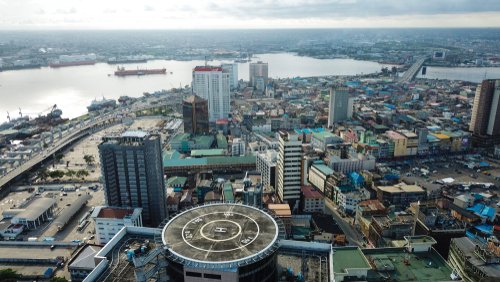Economic Growth, Tech Innovation, and Challenges on the Path to Superpower Status
Belgium (Brussels Morning Newspaper)In recent years, Nigeria has been undergoing a transformative shift from a struggling nation to a potential African powerhouse. Despite facing longstanding internal issues, there is a growing optimism that Nigeria could be the next big player on the continent. Examining economic indicators, technological advancements, and persistent challenges, we delve into the question of whether Nigeria is on the path to becoming Africa’s superpower.
For decades, Nigeria grappled with internal problems, earning the reputation of a failed state. However, international perceptions are changing, with experts speculating on Nigeria’s potential to rise as a dominant force in Africa. The country’s GDP growth outpacing its main rival, South Africa, suggests a positive trajectory, reaching 477.4 compared to South Africa’s 405.7. Despite this economic growth, challenges persist, such as a trade imbalance, inflation, a soaring national debt, and an unemployment rate exceeding 30%.
Nigeria’s stability is further threatened by various internal issues, including clashes between herders and farmers, jihadist insurgencies like Boko Haram, kidnappings, banditry, and the longstanding separatist movement of Biafra. Corruption, government inefficiency, and struggles over oil resources add layers of complexity to the nation’s development.
However, amidst these challenges, there is a glimmer of hope. Nigeria’s vitality and wealth generation are increasingly fueled by activities beyond the government’s control. The unregulated sector, especially in technology, fashion, design, and the creative arts, showcases a surge in entrepreneurial spirit and innovation.
Nigeria’s tech sector, in particular, has gained international recognition with initiatives like the “Silicon Valley” of Lagos. Pioneered by Iyinoluwa Aboyeji, the founder of “Flutterwave,” Nigeria’s tech scene is flourishing. “Flutterwave” has become one of Africa’s top three financial technology platforms, addressing the challenges of online payment in Nigeria and evolving into a multi-billion-dollar enterprise.
Additionally, Future Africa, founded by Aboyeji, invests in startups across the continent, supporting over 50 ventures. Companies like “Releaf” and “Eden Life” are revolutionizing agriculture and household services, contributing to the nation’s dynamic startup scene.
While Nigeria boasts the second-highest GDP in Africa in 2023, trailing only Egypt, it faces hurdles to becoming a superpower. The GDP surge is partially attributed to a rapidly growing population, making Nigeria the fourth most highly populated country globally. Challenges such as low internet accessibility, minimal foreign direct investment, escalating government debt, and the influence of traditional monarchs pose threats to political stability.
The road to superpower status for Nigeria requires overcoming these hurdles, establishing a more stable government, and tackling corruption. If successful, Nigeria holds the potential to ascend as Africa’s superpower, signaling a new era for the continent.




